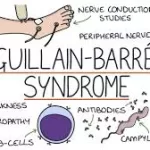A new study from the University of Michigan has revealed that wellness influencers on social media were more likely to oppose COVID-19 vaccination compared to other users. The research, led by U-M School of Information lecturer Elle O’Brien, student Ronith Ganjigunta, and assistant professor Paramveer Dhillon, sheds light on the significant role these influencers played in spreading anti-vaccine messages during the pandemic.
Published in the Journal of Medical Internet Research, the study analyzed social media activity on Twitter (now rebranded as X) from 2020 to 2022, coinciding with the global rollout of the COVID-19 vaccine. It found that wellness influencers, a popular group on platforms like Twitter, posted anti-vaccination content at rates significantly higher than the general user base.
The study highlights the disproportionate influence wellness influencers had in shaping public opinions about vaccines. According to O’Brien, around 50% of wellness influencer accounts identified before the pandemic shared anti-vaccine messaging, a figure approximately double that of a control group. Many of these posts warned followers about potential harm to children from vaccines or framed vaccine mandates as government overreach.
O’Brien suggests that the rise of wellness influencers is partially due to a declining trust in traditional medical experts. “Wellness influencers may fill a void left by diminished trust in public health authorities, serving as an alternative to established voices in medicine and science,” O’Brien explained. The influencers’ ability to attract large audiences can be attributed to their personal, relatable approach to health and wellness, which resonates with followers who may be skeptical of institutional expertise.
The research also explores broader questions about the role of social media in shaping scientific discourse. O’Brien, whose interest in public attitudes toward science grew during her previous career as a neuroscientist, noted that many wellness influencers present themselves as scientific authorities without engaging in rigorous research practices. This raises concerns about the credibility of health advice shared online, especially when such content contradicts established scientific consensus.
The study’s findings are timely, as they provide important insights into the dynamics of misinformation during a global health crisis and underscore the need for greater media literacy and scrutiny of health claims online.
For more information, see the full study: Wellness Influencer Responses to COVID-19 Vaccines on Social Media: A Longitudinal Observational Study, Journal of Medical Internet Research (2024). DOI: 10.2196/56651.











